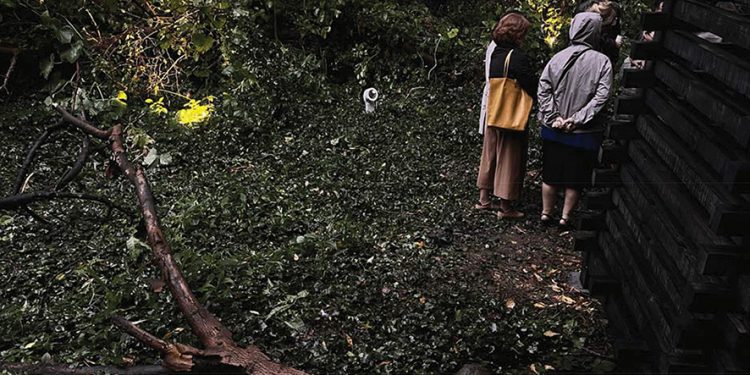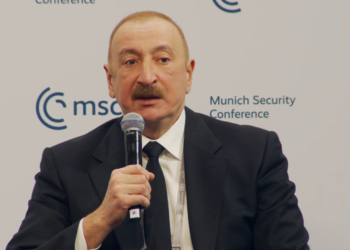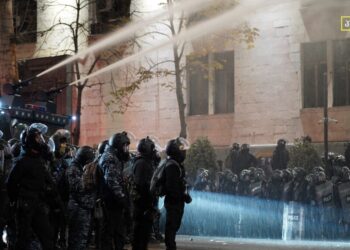As Tbilisi cements itself as a hub of cultural and architectural dialogue, the 2024 Tbilisi Architecture Biennial (TAB) unfolds as one of the year’s most thought-provoking events. Under the theme of ‘Correct Mistakes,’ the Biennial promises to explore new ways of coexisting with our environments—natural, social, and architectural—while taking a critical look at the legacies of modernist interventions and the role of architecture in shaping sustainable futures. The event runs from October through November, featuring an ambitious program of physical projects, exhibitions, screenings, and discussions that address both local Georgian contexts and global architectural discourses.
TAB’s Vision: A Biennial for a Sustainable Future
The 2024 Tbilisi Architecture Biennial, organized by the Tbilisi-based non-profit organization TAB, in collaboration with numerous international partners, is driven by the aim to reimagine urban spaces through socially engaged and ecologically conscious architecture. Co-founded by Tinatin Gurgenidze, Gigi Shukakidze, and Otar Nemsadze, TAB stands out for its focus on transforming underused and neglected urban sites, particularly those that embody past engineering and infrastructural projects. This year’s theme directly addresses the legacy of these past modernist interventions, suggesting alternative futures through participatory projects and artistic experimentation.
The biennial’s events are spread across various iconic and symbolic locations in Tbilisi, engaging the city’s residents in discussions on ecological responsibility, water management, and collective urban participation. Projects like ‘Transforming Legacy: Fog Catcher Obelisk’ and ‘Cenotaph’ take a poetic approach to water as both a literal and symbolic resource, while exhibitions like ‘An Atlas of Commoning: Places of Collective Production’ delve into practices of collective stewardship and grassroots urbanism.
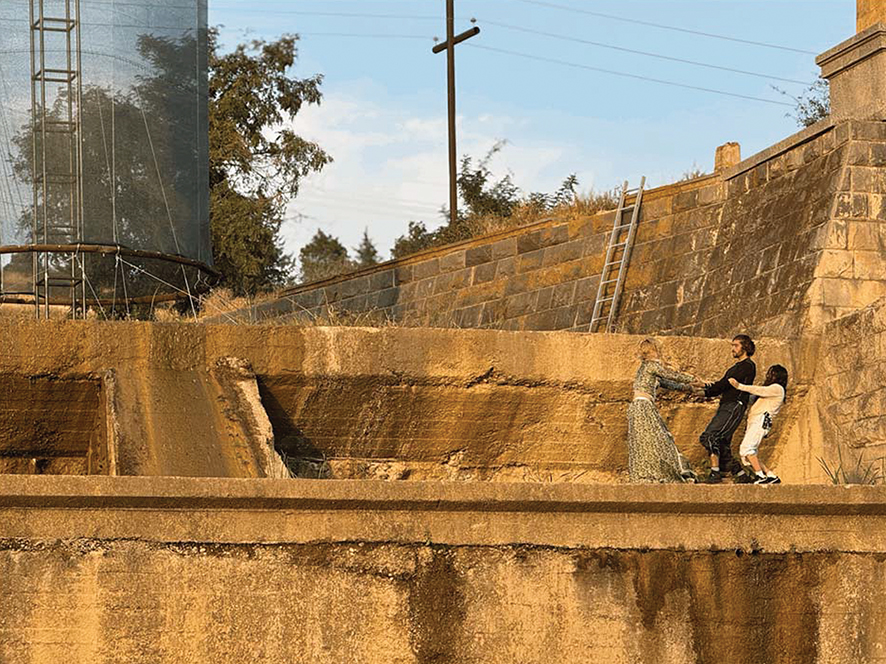
Architectural Activism in the Time of Ecological Crisis
The theme ‘Correct Mistakes’ was born from Georgia’s participation in the 18th Venice Architecture Biennale and reflects the urgent need to address human exploitation of natural landscapes, disregard for ecosystems, and the worsening climate crisis. Political turbulence in Georgia, particularly surrounding resource extraction and environmental neglect, further heightened the stakes. The TAB organizers consciously abandoned traditional architectural exhibitions in favor of documentary, research-driven projects that interrogated the relationship between humanity and nature, and by extension, architecture’s role in correcting historical wrongs.
Architectural activism took center stage throughout the biennial. From workshops to symposiums, the program sought to foster interdisciplinary dialogue on how architecture could evolve to support environmental resilience. Instead of showcasing theoretical models of future cities, the biennial asked visitors to engage with the realities of Georgia’s environmental degradation: the drying of rivers, deforestation, the melting of glaciers, and the mismanagement of water resources.
Opening Highlights: Transforming Legacy at Tbilisi Sea
‘Transforming Legacy: Fog Catcher Obelisk,’ one of the evocative projects in this year’s biennial, officially opened on October 1 at the terraced waterfall near Tbilisi Sea. The installation reclaims a historic site once used for the inauguration of the Samgori irrigation system, a massive modernist achievement symbolizing human domination over nature. Designed by a team of international participants including Xenia, Michel Kessler, Pierre Musy, and Romain Iff, the fog catcher contrasts this domineering legacy by proposing a gentle, environmentally integrated technique for collecting water.
The project features a cylindrical fog catcher situated between two imposing obelisks, emblematic of Soviet-era infrastructure. Instead of reshaping nature to meet human needs, the installation collects water droplets from the air and returns them to the soil. This gesture represents a harmonious collaboration with the environment, offering a reflection on how modern architecture can evolve from a force of domination to one of ecological reciprocity. A special performance by Georgian artist Natia Chikvaidze marked the opening, further deepening the ritualistic and symbolic dimensions of this transformative project.
Highlight Projects: Engaging with Environmental Crises through Artistic Practice
Several standout projects exemplified the biennial’s commitment to addressing environmental crises through research and activism.
One such project was ‘Unmapping Energy Geographies,’ a collaboration between Tekla Aslanishvili, Alexandra Aroshvili, Evelina Gambino, and Natalia Nebieridze. This exhibition focused on the interplay between energy, geography, and social justice, exploring how Georgia’s energy infrastructure intersects with global dynamics of power and control. By examining the often invisible networks of energy that power our cities, the project illuminated how these systems contribute to the exploitation of natural resources.
In ‘Common Water Bodies,’ Lado Shonia and Nikoloz Kvatchrelishvili focused on the critical issue of water management in Georgia, a country rich in water resources but increasingly plagued by mismanagement and climate-induced droughts. Their workshop and exhibition explored the cultural and environmental significance of Georgia’s rivers and water bodies, delving into the collective responsibilities and mistakes that have led to their current state of degradation.
The project ‘The Weather Is Nice, Let’s Panic!’ by Julia Obleitner, Jan Meusburger, Helvijs Savickis, and Anna Kintsurashvili introduced a more playful yet sobering exploration of climate anxiety. Through interactive physical installations, the artists sought to evoke the absurdity of human complacency in the face of the climate emergency, using humor as a tool to underscore the gravity of the situation.
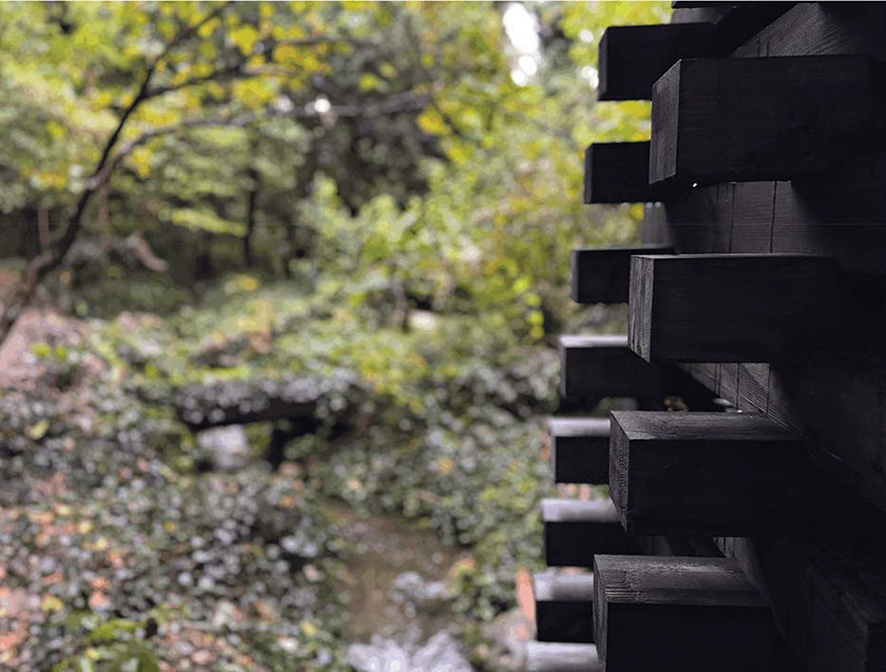
Forgotten Rivers Resurface in KERA’s ‘Cenotaph’
Another key physical project in this year’s Biennial is ‘Cenotaph,’ an installation by Swiss collective KERA that explores Tbilisi’s neglected waterways, many of which have been buried underground or reduced to waste dumps. Installed near Public School 144 on Ortachala Street, the intervention draws attention to the Dukniskhevi creek, one of the city’s many forgotten rivers. The concept behind the project reflects the Greek word “cenotaph”—meaning an empty tomb—paying homage to the buried rivers that continue to flow, albeit unnoticed, beneath the city’s surface.
KERA’s installation is defined by its subtlety. A bell is suspended above the site, its chimes mimicking the hidden flow of the creek and encouraging visitors to slow down and engage in quiet reflection. The intervention acts as both a tribute and a wake-up call, urging the public to reconnect with Tbilisi’s natural waterways and reflect on the consequences of modern urban expansion. This minimalist yet powerful project seeks to revive public awareness around the city’s hidden hydrological network, inviting us to imagine an urban future that honors nature rather than conceals it.
A Global Conversation on Urban Commons: ‘An Atlas of Commoning’ Exhibition
One of the major exhibition highlights of TAB 2024 is ‘An Atlas of Commoning: Places of Collective Production,’ a traveling show presented in collaboration with the German ifa-Institut für Auslandsbeziehungen and ARCH+. Opened at the TBC Concept Flagship on Kote Marjanishvili Street, this exhibition tackles the critical issue of urban commons—the shared spaces and resources that form the backbone of social and environmental sustainability.
The exhibition focuses on the practice of “commoning”—the collective production and governance of resources such as water, land, and communal space. Featuring case studies from Berlin, Pittsburgh, Montevideo, Buenos Aires, and now Tbilisi, the Atlas showcases grassroots projects aimed at reclaiming urban spaces for collective use. With the rapid privatization and commercialization of public spaces in post-Soviet cities like Tbilisi, the concept of the commons has gained renewed significance.
Curated by an international team led by Stefan Gruber from Carnegie Mellon University, this Tbilisi edition adds local case studies that explore how Georgian communities are organizing to protect shared spaces and resist market-driven urban development. The accompanying Commoning Tbilisi Symposium (held on October 5) brought together local activists, scholars, and urban designers for discussions on collective urban stewardship, providing a rich intellectual backdrop to the exhibition.
Documentary Screenings: Cinema as a Lens on Architecture
In collaboration with the Documentary Association Georgia (DOCA Georgia), the biennial featured a series of documentary film screenings that tackled environmental and social issues head-on. Films like ‘Stormy Nights’ and ‘The Water Dragon / Land Underwater’ explored the devastating effects of climate change on both natural and human systems. These screenings emphasized the power of documentary cinema as a tool for activism, education, and engagement, aligning with the biennial’s broader mission to correct the mistakes of the past and envision a more sustainable future.
Over the next two weeks, film lovers will have the opportunity to explore critical issues related to architecture, water, and urbanization through powerful documentary narratives. The films ‘History of Water,’ ‘Medusa,’ and ‘Dead Slow Ahead’ will be screened as part of the program, each of which touches on different dimensions of environmental degradation, human agency, and resource management.
‘History of Water’ examines the role of water in shaping civilizations and controlling territories, while ‘Medusa’ weaves a haunting story of environmental destruction and human resilience. ‘Dead Slow Ahead,’ on the other hand, offers a stunning visual reflection on industrial landscapes, capturing the slow disintegration of a cargo ship as a metaphor for the decay of modern industrial society. These screenings will spark discussions on how documentary film serves as a crucial medium for investigating and narrating architectural and environmental histories.
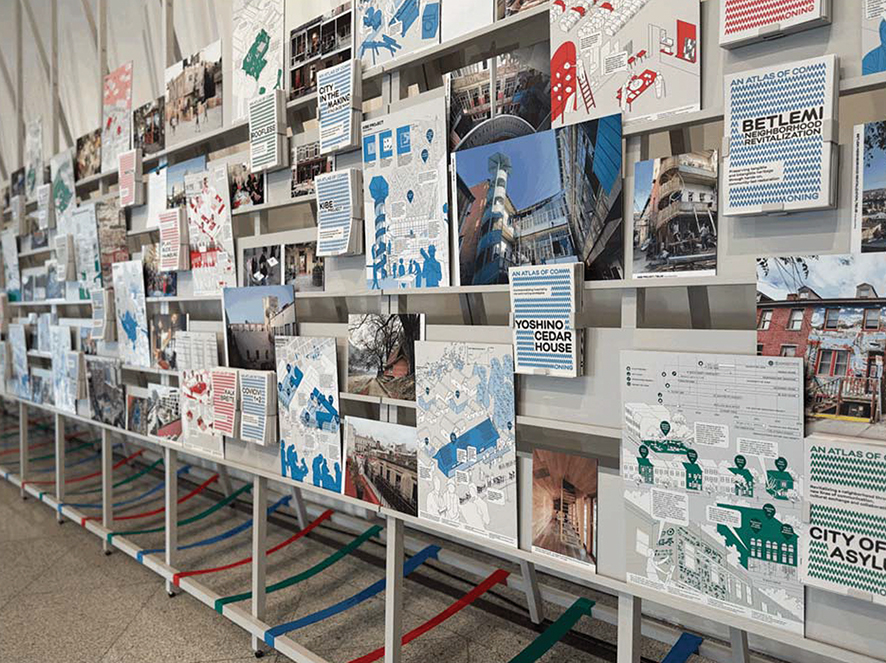
Engaging Minds: Lectures, Guided Tours, and Exhibitions
Beyond its architectural installations and physical projects, the Tbilisi Architecture Biennial 2024 offered a wide array of intellectually stimulating lectures, guided tours, and exhibitions that deepen the public’s engagement with critical architectural and environmental issues. The Biennial’s opening on September 28 at the Hydrometeorology Institute featured a keynote lecture by Philippe Rahm, known for his work on atmospheric architecture and sustainability, setting the tone for the Biennial’s focus on ecology and architecture’s role in shaping our responses to climate change. His insights on energy geographies and the impact of architecture on the climate resonated with many of the exhibitions that follow, such as ‘The Weather Is Nice, Let’s Panic!’ and ‘Unmapping Energy Geographies.’
Visitors could also look forward to guided tours like ‘The River Wailed Like a Wounded Beast,’ offering curated walks through exhibitions that spotlight forgotten urban rivers and the consequences of rapid urbanization. For those curious about Tbilisi’s complex urban forest, the guided walk through the city’s green spaces provided a unique opportunity to understand the hidden ecological landscapes that lie within the city.
The Biennial’s intellectual rigor continued with symposiums such as ‘Commoning Tbilisi,’ which brought together local and international voices to discuss urban commons, and workshops like ‘Double Exposure’ by la–clique, where participants could engage with cutting-edge discussions on urbanism and architecture. Guided tours of exhibitions, such as the one for ‘An Atlas of Commoning’ on October 5, offered a closer look at how commoning practices are transforming urban spaces around the world.
A Call to Action through Reflection and Collaboration
TAB 2024 succeeded in transforming the architecture biennial format into a platform for critical reflection and activist engagement. Through its focus on research, documentary work, and environmental justice, the biennial challenged participants and visitors alike to confront the collective mistakes that have shaped Georgia’s landscapes and ecosystems. In place of abstract architectural concepts, the biennial offered tangible, research-driven solutions for navigating the environmental crises of our time.
By centering the voices of architects, environmentalists, and the public, the biennial underscored the importance of interdisciplinary collaboration in correcting these mistakes. As we continue to grapple with the consequences of climate change and environmental degradation, events like TAB 2024 remind us that architecture must evolve to meet these challenges, serving not just as a means of creative expression but as a tool for social and ecological transformation.
By Ivan Nechaev
The author and editor apologize for a misspelling of names in the printed version of this piece.

